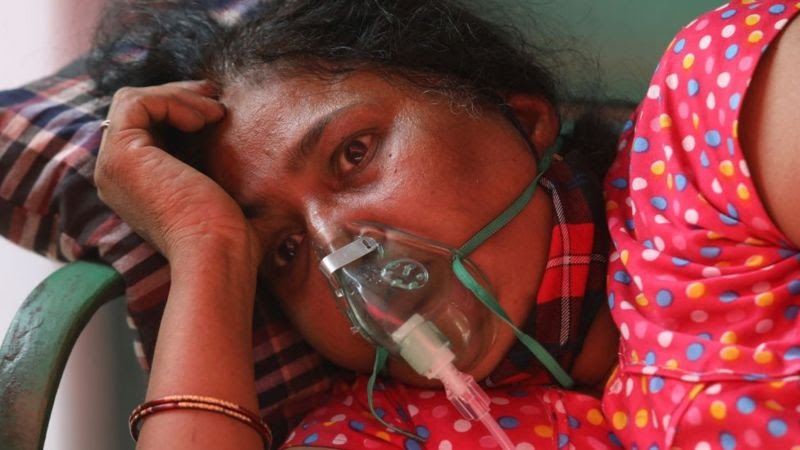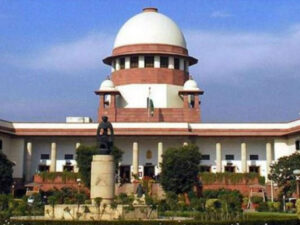
India is starting to reopen after a second wave of Covid-19 infections hit the country in April and May. But now experts have warned that there could be a third wave in the next few months.
Courts have questioned state governments about their readiness, with some experts warning that a third wave could emerge within 12-16 weeks, while others worry that the new Delta Plus may undermine existing policies. can.
Delta Plus is affiliated with Delta, which is an existing concern that was first identified in India last year that carried a second deadly wave.
But just how real is this fear? Subsequent waves are expected, but their magnitude and intensity depend on certain factors.
covid security protocol
The number of daily cases in India has dropped to more than 50,000 in recent days, down from a peak of 400,000 in May. The decline in numbers is mainly due to strong closures by provinces.
The second wave is aimed at crowds at markets, election rallies and religious ceremonies. Poor policy decisions, improper monitoring and disregard for old warnings are some of the reasons. Experts say that when the same mistakes are repeated, it can strengthen the third wave.
Dr Chandrakant Laharia, a specialist in public policy and health programs, says that India is also at a critical juncture and that human behavior will greatly determine the outcome of the next wave.
Is India’s Delta Plus a worrying variant of the Covid-19?
What do we know about India’s new vaccines?
He said it was important for countries to gradually open up the economy. “If we are in a hurry to open up and people do not follow the COVID safety guidelines, we only help the virus spread faster.”
He advises that safety policies need to be implemented “locally” – if certain markets and businesses do not follow the rules, they should be punished.
Could a new alternative be a threat?
The Delta model has run the second largest wave. Experts believe that many more such forms may appear in the future if the virus is still allowed to pass from infected people.
The Indian government has announced that a new alternative called Delta Plus is “a matter of concern”. But at present there is not enough data to say that it could create a third wave. Although experts say the situation “could change within weeks”.
Epidemiologist Dr. Lalit Kant says that as long as the virus continues to spread, the risk of new extinctions will remain. “We need to continue our follow-up efforts to identify dangerous species early and implement protective measures,” he said.
India has tracked 30,000 samples as of June, but experts believe more needs to be done. Dr A Fatahuddin, who has treated thousands of Covid patients, says the current vaccine works in known forms – but there is no guarantee that it will work in new forms. There are also cases of sick people even though they have been vaccinated – especially after taking the first dose.
- India is a Covid disaster – it should not have been
- The success and failure of the Indian vaccination campaign
He believes that another wave is inevitable but “we can delay and manage it with appropriate measures such as sequence – tracking changes – and strictly enforcing safety measures”.
“If we don’t do all this, a third wave could hit us faster than we think.”
Is coverage of past vaccines and diseases enough?
The effect of the third wave also depends on the level of insecurity in the Indian population – both from previous diseases and vaccines. The country took an average of 3.25 million doses daily between June 9 and 22. But it needs to reach 8.5-9 million doses daily to meet its goal of vaccinating qualified people by the end of 2021.
Only more than 4% of Indians are fully vaccinated and an estimated 18% have received a single dose so far.
Laharia says that if the speed is not increased, millions of people will still be at risk, although protecting themselves from past Covid infections could protect people.
But it is difficult to detect the number of infected Indians and it is possible to develop natural antibodies to fight the virus. Many people in cities, towns, and cities are struggling to get tested and have no way of knowing if they were infected. Even the death toll at Covid was relatively low. Dr. Lahariya says the number of people who are immune to pre-existing infections can be between 55-60%.
Gautam Menon, a mathematician and professor of physics and biology at Ashoka University, puts the highest figure at about 60-70%. He is confident that India will not tolerate the effects of the second wave again.
But he warns with caution.
“Even though a large portion of our population is already infected, there are still about 20% -30% of people who have not been diagnosed, including those who are elderly or incapacitated,” he said.
But experts agree unanimously that people cannot afford to take Covid lightly as India still has a large number of potential buyers and the threat of potentially dangerous diversity is still evident. “So the third wave is inevitable, it is up to us to slow it down and reduce its impact,” said Dr Fathahudeen.
“Just think of the health workers who have been in this war for more than a year. We are tired, please do not give up. I am not sure if we can tolerate the third wave,” he added.






